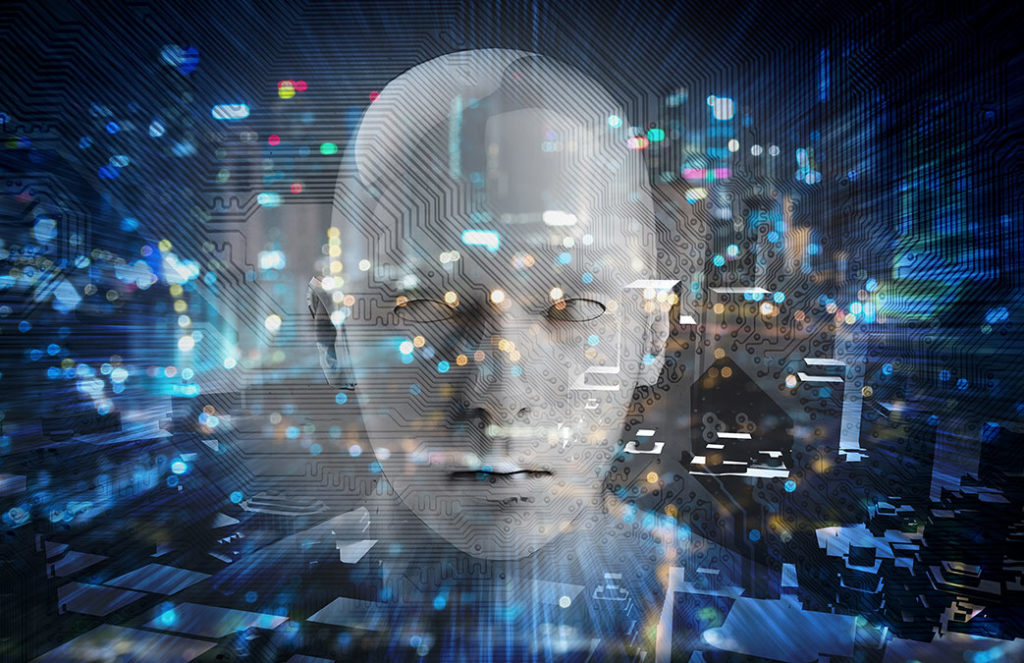Interest in Artificial Intelligence (AI) has grown in recent years as people revere and debate realistic applications across all industries. AI activity within both the Retail and Hospitality space has been steadily increasing as brands look at ways to gain that slight advantage over their competitors and innovate, with their success or failure resting on a knife-edge as we emerge from some difficult economic times.
Although still in its infancy, we take a bold position on the 4 ways we predict AI will completely transform the Hospitality industry:
1. Personalization to the nth degree
AI will allow for personalization on a scale never seen before. As operators prioritize not only capturing market share but making sure their existing customers keep coming back, extreme personalization emerges as the critical factor for a transformative guest experience.
Machine learning will allow operators to automatically build up a 360-degree profile of each customer enabling them to create a unique customer journey and experience. This journey will be tailor made to the guest from their preferred channel of choice and marketing offers to loyalty campaigns and even the way the order and payment journey is presented to them. And the icing on the cake? It’ll all be automated. Parameters can be set by the brand but AI will handle the mechanics and continually learn and improve fed by the influx of data, personalization building on personalization resulting in the ultimate experience for guests.
We’re already beginning to see evidence of this within the Hospitality industry as brands such as Domino’s use AI virtual assistants which customers can talk or text with. By using a combination of machine learning and conversational systems, the company is hoping to make ordering fast, natural and even entertaining.
2. Disparate Hospitality systems will merge into one master centralized entity
As restaurant brands look to AI to drive customer engagement and experience through chatbots and continuously learning marketing systems, operators will be forced to centralize their data. The prerequisite for machine learning is a single system where all relevant data streams are linked up and made available.
POS systems, marketing platforms, CRM databases, payment platforms, digital signage, guest-facing channels and even inventory control, staff management technology and back of house kitchen display systems will all be integrated. A holistic view of all digitally enabled systems will finally be made available through one master systems integrator and feed into AI applications for continuous improvement whether it be for business efficiency or guest experience.
3. Brands will have to devise a new advertising strategy with AI technology providers
Aaron Shapiro, CEO of marketing firm Huge explains to Business Insider, “As machines start to make more decisions for people, it makes it harder for marketers to figure out how to enter that equation and how to influence consumer behavior. It’s very disruptive for many companies.”
For example, if you ask Amazon’s Alexa to order you a pizza, data on what and where you prefer to order is already gathered based on what you’ve bought previously so you don’t even have to choose the brand or item to reorder. Historically, a better experience has been dependant on offering more options but now with AI, it’s not about greater choice, it’s about the perfect choice specifically for that individual customer.
With past preferences locked in, companies that own the most successful versions of these AI products such as Amazon and Google assistants, will wield immense power in the future. Offering up a specific brand based on past consumer preferences does have an impact on AI providers themselves. While Amazon’s Alexa encourages increased spend on Amazon, it’s still unclear how Google Assistant’s revenue model will take shape.
Sridhar Ramaswamy, Google’s VP of advertising maintains that making money off Assistant is not the priority right now and that Google is “very focussed on getting consumer experience right first.” Technology Review speculated that, in the future, Google could include paid messages among the list of recommended products or services after asking Assistant for help finding a new business or service. However, Recode reports that there is a feature coming to Assistant that pulls the same data as the ad option already offered in traditional search where marketers pay for an ad which also shares results for nearby sellers that have an item in stock that the user is looking for. Although the same data is accessed by Assistant, brands are not currently being charged for inclusion so it seems there’s everything to play for when it comes to shaping Google Assistant’s revenue model.
4. Available channels to interact with brands will grow at pace
From Slack to Facebook and Google Assistant to other instant messaging platforms, the use of dialog systems within virtually any digital channel will allow customers to connect with brands in more comprehensive and natural ways.
Tacobell for example, is in beta testing mode with their chatbot: Tacobot. Through Slack, customers can chat with Tacobot to order food, choose a pick-up location and even ask unrelated questions such as how is Tacobot feeling and find out what its favorite movie is!
In a previous post: How conversational systems are set to transform the Hospitality industry, we saw how Domino’s has also dipped its toe into voice ordering by linking its app to Amazon’s Alexa system. Domino’s customers can now order pizza simply by telling their Echo or Dot speaker devices that they’d like to place an order. This triggers a pre-set order and the customer is able to pay through an existing account.
GeoMarketing recently reported on Panera Bread in the US as one of the first national restaurant chains to offer voice-activated ordering and payment through Google Assistant. Its founder and CEO, Ron Shaich explained, “With more than 1.3M digital orders placed a week at Panera, there is a clear demand for voice-activated ordering methods, and this integration with Google is a step towards an even better guest experience.”
Although excitement around the applications of AI is growing, a report by The Boston Consulting Group shows there is a gap between AI expectations and the current reality for most organizations. 85% of executives expect AI to result in competitive advantage within 5 years but only 5% engage in substantial AI-centric activities. Whatever your position is, whether you want your brand to be at the forefront of AI or just see what direction and opportunities it might afford in the future, AI is on a trajectory to significantly disrupt not just Hospitality but all aspects of your customers’ lives and the way they fundamentally interact and transact with brands in the future.





